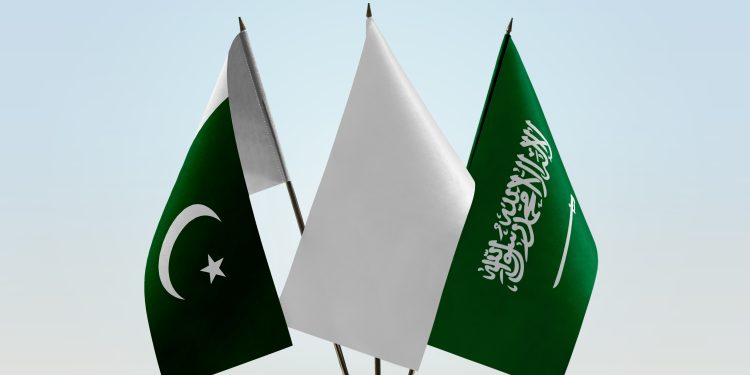The Kingdom of Saudi Arabia, recognizing Pakistan as a prime economic and investment destination, has expressed its commitment to strengthening business opportunities with the South Asian nation. This sentiment was echoed by Saudi Arabia’s Deputy Investment Minister, Ibrahim Almubarak, during the Pakistan Saudi Arabia Investment Conference, a two-day forum that commenced in Islamabad.
Almubarak, who led a significant Saudi delegation to the conference, lauded Pakistan’s economic promise, underpinned by its demography, geographic position, and natural resources. He highlighted the deep-rooted fraternal ties between the two nations and asserted Saudi Arabia’s desire to elevate Pakistan to a premier international partner status.
According to reports by state broadcaster Radio Pakistan, Almubarak views the conference as a fruitful platform for fostering a more profound understanding of Pakistan’s vast investment potential. He conveyed confidence in the symbiotic growth potential of the public and private sectors in both countries.
The presence of approximately two million Pakistani residents in Saudi Arabia, who significantly contribute to the Kingdom’s ambitious Vision 2030, was also acknowledged by Almubarak.
Muhammad Aurangzeb, Pakistan’s Finance Minister, while speaking at the event, reaffirmed the government’s dedication to creating a conducive environment for private-sector-led export growth. The minister highlighted the government’s focus on attracting foreign direct investment to rejuvenate numerous sectors of the economy.
Despite challenges, Aurangzeb provided a hopeful outlook on Pakistan’s economic trajectory, noting improvements such as a reduction in the current account deficit, increased foreign exchange reserves, a stable local currency, and a decline in inflation rates. He also mentioned the influx of foreign investors into the Pakistan Stock Exchange and the government’s pursuit of a comprehensive IMF program to solidify macroeconomic stability and structural reforms.
Supplementing the finance minister’s remarks, Petroleum Minister Musadik Malik and Commerce Minister Jam Kamal underscored the importance of economic collaboration. They advocated for private sector involvement in infrastructure, mines and minerals, tourism, and agriculture, while striving to eliminate bureaucratic hurdles to foster a welcoming environment for commerce and equitable investment opportunities.
Jam Kamal Khan, Musadik Malik, and Atta Tarar participated in a news conference on the event’s sidelines, discussing the enthusiastic bilateral talks regarding joint ventures in various sectors. The commerce minister also disclosed plans for a future Pakistani delegation’s visit to the Kingdom, aiming to further business relations.
On the investment facilitation front, Lieutenant General Sarfraz Ahmad, National Coordinator of the Special Investment Facilitation Council (SIFC), expressed gratitude for the unwavering support of the Saudi leadership and pledged top priority to investors, particularly from Saudi Arabia. He emphasized the full commitment of law enforcement, political, and military hierarchies to ensure a secure investment environment.
The Saudi delegation’s arrival in Islamabad was met with a warm reception by Kamal and Malik. The visit’s objective is to bolster trade ties and explore investment opportunities in sectors such as agriculture, mining, human resources, energy, chemicals, and maritime, among others. The commerce minister expressed optimism about finalizing business deals during the visit, following Prime Minister Shehbaz Sharif’s recent discussions with Saudi Crown Prince Mohammed bin Salman.
An earlier visit by a former caretaker prime minister indicated Saudi Arabia’s intentions to allocate substantial investments in Pakistan over the coming years. A ministry official also highlighted Saudi Arabia’s economic diversification efforts under Vision 2030, signaling a transition from an oil-centric economy to a more varied and competitive one.
The bilateral trade figures between Pakistan and Saudi Arabia demonstrate a substantial exchange of goods, with Pakistan’s exports to the Kingdom featuring items like rice, meat, fruits and vegetables, and camping goods.


